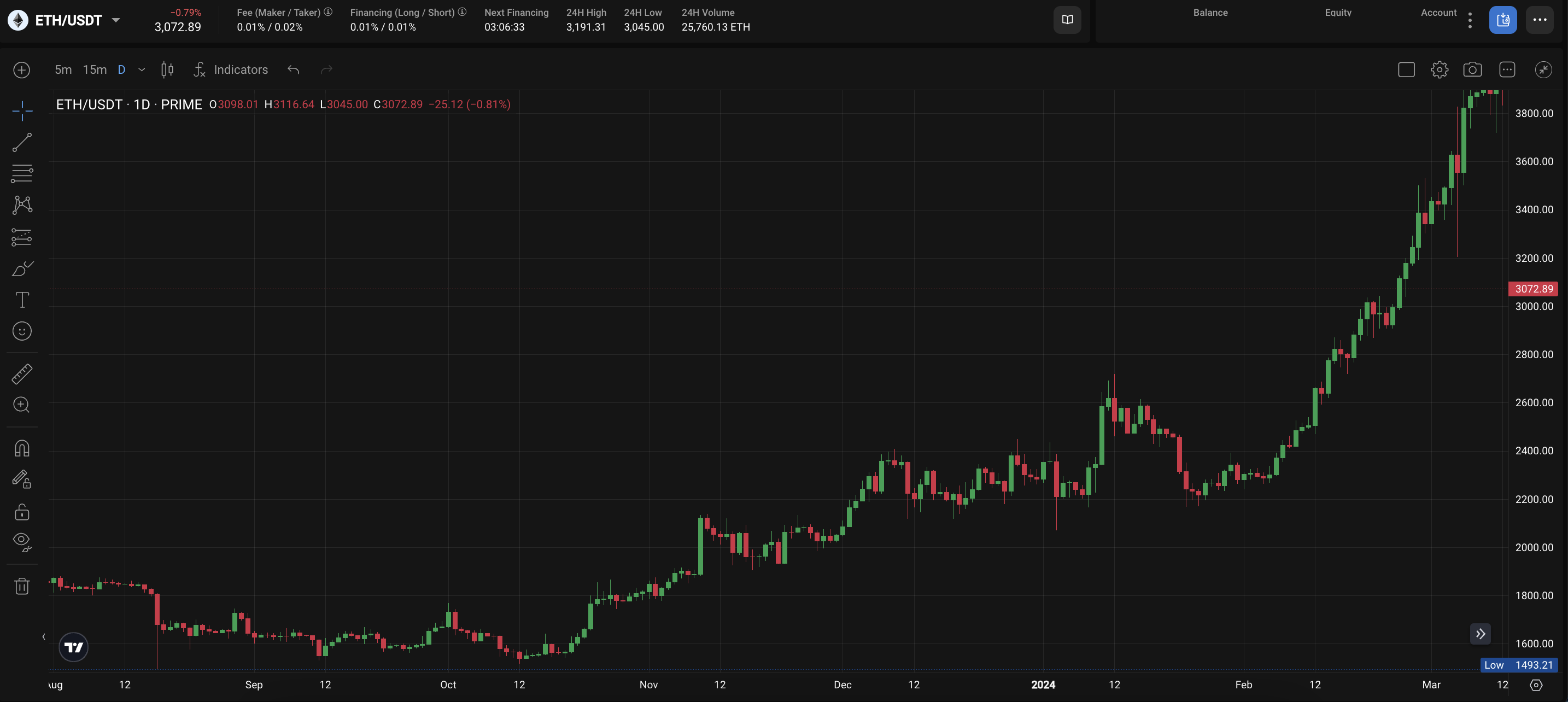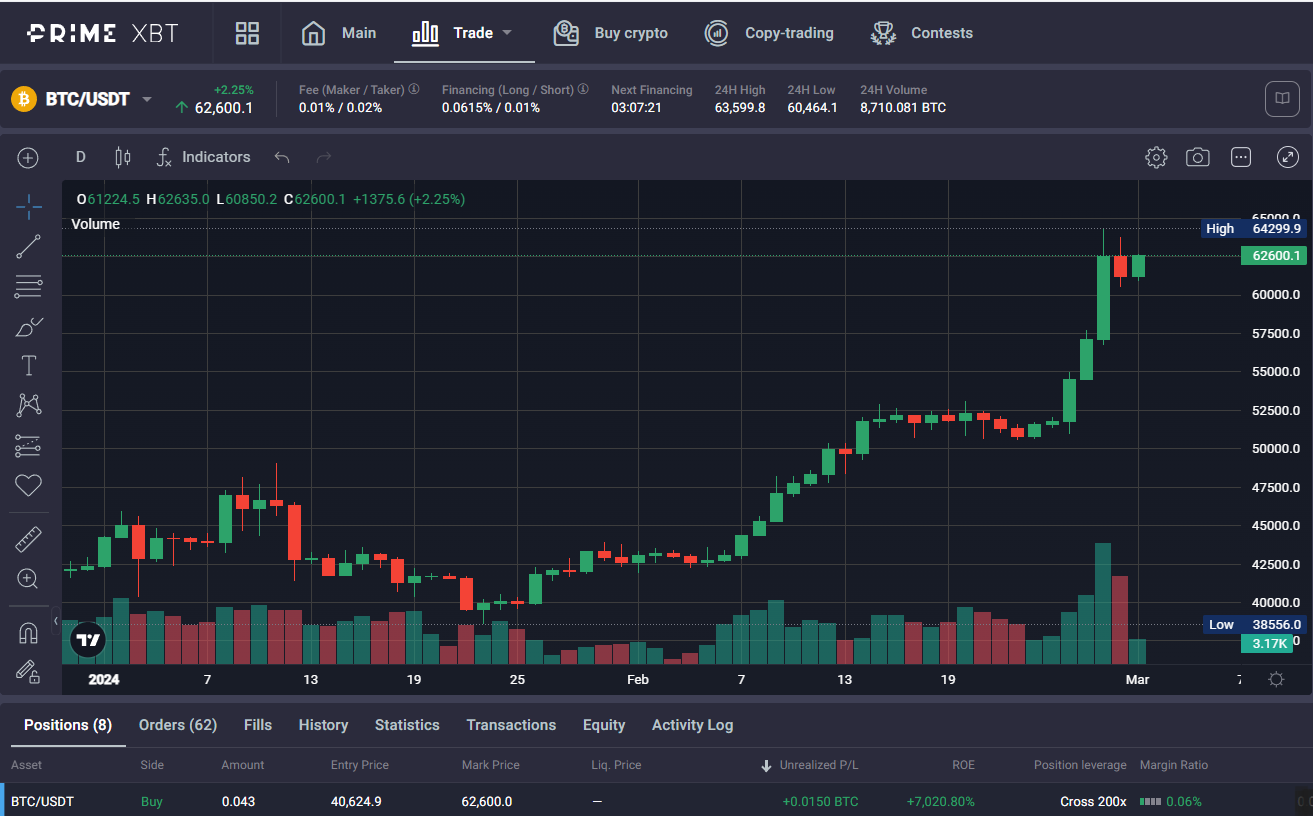Ethereum, the second-largest blockchain platform after Bitcoin, is renowned for its smart contract functionality, enabling the development of decentralised applications (dApps) and fostering a thriving ecosystem of innovative projects.
As interest in Cryptocurrency investments continues to rise, Ethereum-based investment opportunities, including ETFs (Exchange-Traded Funds), are attracting significant attention.
In a significant development on May 23, the U.S. Securities and Exchange Commission (SEC) approved applications to list exchange-traded funds (ETFs) tied to the price of ether. This means that, while the ETFs are not yet ready to be traded, the approval allows investment firms to move forward with their plans to offer these funds.
Key takeaways:
- Ethereum ETFs offer exposure to Ethereum without directly owning or managing the cryptocurrency
- These investment vehicles track the price of Ethereum, allowing investors to participate in the Ethereum market without the complexities of Cryptocurrency wallets and exchanges
Ethereum ETFs provide a regulated and accessible way to invest in Ethereum, potentially appealing to both traditional and Crypto-curious investors.

What is an Ethereum ETF?
An Ethereum ETF is an investment vehicle designed to track the price of Ethereum (ETH), the native currency of the Ethereum blockchain. Unlike directly purchasing Ethereum, which involves managing Crypto wallets and navigating Cryptocurrency exchanges, Ethereum ETFs function similarly to traditional stock ETFs.
These ETFs hold underlying assets linked to the price of Ethereum, enabling investors to gain exposure to Ethereum’s market performance without the technical complexities associated with owning the cryptocurrency directly. They offer a regulated and accessible way for both traditional investors and those interested in digital assets to participate in the Ethereum market.
The evolution of Ethereum ETFs
Recent developments, including increasing institutional interest and evolving market dynamics, appear to be paving the way for greater regulatory acceptance of Crypto ETFs. The Securities and Exchange Commission (SEC), the primary regulatory body for securities in the US, has historically been cautious about approving Crypto-related products.
On May 23, the U.S. Securities and Exchange Commission (SEC) approved applications from Nasdaq, CBOE, and NYSE to list exchange traded funds (ETFs) tied to the price of ether, potentially allowing these products to begin trading later this year.
The emergence of Ethereum ETFs follows the success of Bitcoin ETFs, which were first approved in the United States in October 2021.
Similar to the first wave of Bitcoin ETFs, the initial Ethereum ETFs launched in October 2023 are classified as futures ETFs. This means they track the price of Ethereum through futures contracts
The launch of spot Ethereum ETFs signifies a significant development in the regulatory landscape surrounding cryptocurrency investments.
How Ethereum ETFs work
Ethereum ETFs operate through different mechanisms depending on their type: spot or futures. Both aim to track the price of Ethereum, but their underlying structure and investment approach differ.
Spot Ethereum ETFs:
- These ETFs directly hold the underlying asset, which is physical Ethereum (ETH) tokens
- They function similarly to traditional Stock ETFs, with the fund manager purchasing and holding Ethereum in proportion to the number of shares outstanding
- The value of a spot Ethereum ETF share closely mirrors the net asset value (NAV) of the underlying Ethereum holdings, aiming to accurately reflect the market price of Ethereum
Spot Ethereum ETFs are traded on traditional Stock exchanges, offering investors a familiar and regulated way to gain exposure to Ethereum.
Futures Ethereum ETFs:
- Instead of holding physical Ethereum, they invest in Ether futures contracts. These contracts represent agreements to buy or sell Ethereum at a predetermined price on a specific future date.
- The value of a futures Ethereum ETF share is derived from the performance of the underlying futures contracts, which may not always perfectly track the spot price of Ethereum due to factors like contract expiration and market conditions.
Compared to spot ETFs, futures Ethereum ETFs often have lower expense ratios as they require less ongoing management of the underlying asset.
Spot vs. Futures Ethereum ETFs
Deciding between a spot Ethereum ETF and a futures Ethereum ETF depends on your individual investment goals and risk tolerance. Here’s a simplified comparison:
Similarities and differences between Spot Ethereum ETFs and Futures Ethereum ETFs.
| Feature | Spot Ethereum ETF | Futures Ethereum ETF |
| Underlying Asset | Physical Ethereum (ETH) tokens | Ether Futures Contracts |
| Price Tracking | Aims to closely track spot price | May deviate slightly due to futures |
| Expense Ratio | Generally higher | Generally lower |
| Management Complexity | Simpler, similar to stock ETFs | More complex due to futures contracts |
| Accessibility | Traded on traditional stock exchanges | Traded on traditional stock exchanges |
The benefits of investing in Ethereum ETFs
Ether ETFs offer several advantages, making them attractive for both seasoned and novice investors:
- Accessibility for traditional investors: unlike directly purchasing and managing Ethereum through Cryptocurrency exchanges or wallets, an Ether ETF can be traded on traditional a Stock exchange. This familiarity and ease of access can appeal to traditional investors who might be hesitant to navigate the complexities of the Cryptocurrency ecosystem.
- Portfolio diversification: integrating Ethereum ETFs into a diversified portfolio can offer potential risk mitigation and exposure to a new asset class.
- Potential returns: while not guaranteed, Ethereum ETFs offer the potential to benefit from price appreciation in the Ethereum market. Investors can potentially gain exposure to Ethereum’s growth without directly managing the Cryptocurrency itself.
It’s important to remember that these benefits are not exclusive to specific ETFs.
However, some notable examples of currently available spot Ethereum ETFs include the ProShares Ether Strategy ETF (EETH), Bitwise Ethereum Strategy ETF (AETH), and the VanEck Ethereum Strategy ETF. All offer exposure to Ethereum and are traded on major US Stock exchanges.
Challenges and considerations
While offering numerous benefits, Ether ETFs come with inherent challenges and considerations:
- Regulatory uncertainty: the regulatory landscape surrounding cryptocurrency is still evolving, and future regulations could potentially impact the viability and performance of Ether ETFs.
- Expense ratios: even though expenses may be lower than individually managing futures contracts, expense ratios associated with Ether ETFs can still eat into potential returns.
- Indirect exposure: Ether ETFs offer indirect exposure to the asset. This means investors don’t benefit from potential staking rewards or participate in governance decisions related to the Ethereum network.
- Fees: various fees, including trading commissions and management fees, can be associated with investing in an Ether ETF.
- Income taxes: like other investments, profits generated from Ether ETFs are subject to capital gains taxes. Investors should factor in potential tax implications before making investment decisions.
The Crypto market, including Ethereum, is known for its volatility. Investors should be prepared for price fluctuations and understand their risk tolerance before investing in an Ether ETF.
Ethereum ETFs vs. direct Ethereum investment
While both Ethereum ETFs and direct Ethereum investment offer exposure to the Ethereum market, they cater to different investment styles and risk preferences. Let’s break down the key differences:
Investment approach: Ethereum ETFs provide a managed collective investment in Ethereum assets, while direct Ethereum investments allow for personal ownership of Ethereum tokens.
Trading flexibility: Ethereum ETFs offer regulated exchange trading with familiar interfaces and possible cost advantages, whereas direct investments involve Crypto exchange use with varying fees and regulations.
Price movements: ETFs aim to reflect Ethereum’s spot price with minor variances due to management, while direct investments capture Ethereum’s market price, influencing profit potential and risk.
Management: ETFs are overseen by professional managers, easing investor burden but lessening control, in contrast to direct investments that require personal management and security of Ethereum tokens.

Choosing the right option
The best option depends on your individual needs, investment objective, and risk tolerance.
Consider factors like investment goals, comfort level with cryptocurrency technology, and risk management preferences before making a decision.
The future landscape of Ethereum ETFs
The Securities and Exchange Commission (SEC) and other regulatory bodies will continue to play a crucial role in shaping the regulatory landscape surrounding cryptocurrency ETFs.
Clear and consistent regulations could pave the way for wider acceptance and potentially attract more institutional investors to the market.
The future of Ethereum ETFs is likely to be shaped by continued innovation in the digital asset space and the evolving needs of investors seeking exposure to the cryptocurrency market.
While it’s difficult to predict the future with certainty, Ethereum ETFs, if established within a supportive regulatory environment, are likely to experience future growth and potentially become a mainstream investment vehicle for accessing the Ethereum market.
Comparison to Bitcoin ETF

Bitcoin ETFs, being first to market, provide a longer track record and established industry presence.
However, Ethereum’s unique capabilities and potential future growth prospects could lead to Ethereum ETFs carving out a significant space in the Cryptocurrency investment landscape, possibly mirroring or even surpassing the growth trajectory of Bitcoin ETFs.
Should you invest in Ethereum ETFs?
Before diving into Ethereum ETFs, it’s crucial to make an informed decision that aligns with your investment strategy. Here are some key considerations:
Align with your investment goals: Ethereum ETFs might be suitable for long-term growth or portfolio diversification, but they may not be ideal for short-term investment strategies due to the inherent volatility of the Crypto market.
Consider the market outlook: Researching market trends and analysing expert opinions can help you form an informed perspective on the future outlook of Ethereum and the broader Crypto market. This understanding can guide your decision on whether Ethereum ETFs align with your investment strategy.
Compare with other options: Explore alternative investment options such as Bitcoin ETFs or traditional investment vehicles to determine which best aligns with your risk tolerance and financial goals.
Conclusion
The emergence of Crypto ETFs marks a significant development in bridging the gap between the digital assets market and mainstream investment.
These ETFs offer a regulated and accessible way for investors to gain exposure to Ethereum without the complexities of directly managing Cryptocurrency wallets and exchanges.
While still young, Ethereum ETFs hold the potential to become a valuable tool for integrating cryptocurrency into diverse investment portfolios.
This article has provided a comprehensive overview of Ethereum ETFs, exploring their workings, benefits, challenges, and the evolving landscape they operate in.
By understanding these factors and conducting your own research, you can make informed decisions about whether Ethereum ETFs are a suitable addition to your investment portfolio.
Related News
https://primexbt.com/for-traders/ether-soars-above-3500-on-etf-optimism/
https://primexbt.com/for-traders/bitcoin-falls-as-fed-rate-fears-overshadow-ether-etf-approval/
Is a spot ETH ETF the same as a spot BTC ETF?
No, because they deal with different digital assets. Spot Bitcoin ETFs directly hold Bitcoin, while no approved spot ETH ETFs exist in the US as of March 1, 2024. The initial Ethereum ETFs launched in October 2023 are futures-based, similar to early Bitcoin ETFs.
How do I invest in an Ethereum ETF?
If available, Ethereum ETFs can be bought and sold on regular stock exchanges like any other exchange-traded fund.
What happens if the SEC rejects spot ETH ETFs?
The SEC's decision on spot ETH ETFs could impact the crypto market and investor sentiment.
The content provided here is for informational purposes only. It is not intended as personal investment advice and does not constitute a solicitation or invitation to engage in any financial transactions, investments, or related activities. Past performance is not a reliable indicator of future results.
The financial products offered by the Company are complex and come with a high risk of losing money rapidly due to leverage. These products may not be suitable for all investors. Before engaging, you should consider whether you understand how these leveraged products work and whether you can afford the high risk of losing your money.
The Company does not accept clients from the Restricted Jurisdictions as indicated in our website/ T&C. Some services or products may not be available in your jurisdiction.
The applicable legal entity and its respective products and services depend on the client’s country of residence and the entity with which the client has established a contractual relationship during registration.




